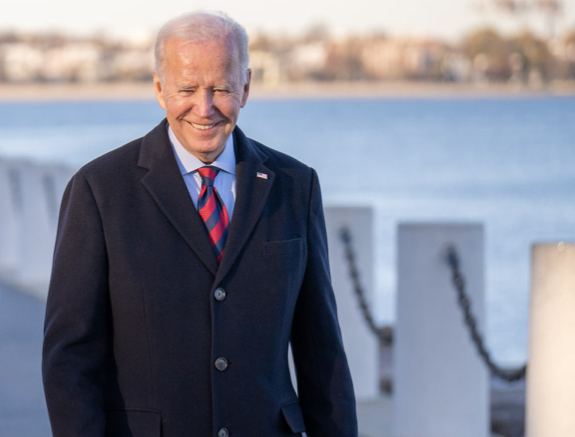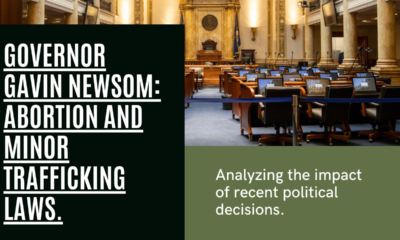Civilization
Biden’s War on Domestic Energy Intensifies
President Biden struck another blow at domestic energy with his moratorium on new liquefied natural gas (LNG) terminal facilities.

On Jan. 26, President Joe Biden took an aggressive step forward in his war on American energy by halting the permitting of new liquified natural gas (LNG) export terminals. This action has massive global implications, as TPPF’s Mark Mills laid out when the decision was publicly announced.
It also has the added benefit for the president of attacking primarily Texas and Louisiana, red states that account for the bulk of U.S. LNG exports. This decision comes on the heels of Texas taking steps to secure its border with Mexico, putting the state directly at odds with the administration—once again.
But the president’s politically motivated actions will reverberate far beyond America’s natural gas producing regions. By locking global supply and demand imbalances in place for longer, this decision will send billions of dollars to foreign producers and raise the cost of energy globally. Any short-term drop in domestic prices will ultimately be negated by reductions in future domestic production.
If this decision doesn’t help Americans and hurts our allies, why do it? Politics, of course, primarily appeasing the radical green cartel that forms a key part of the president’s base, and, perhaps to the surprise of a casual observer, rent-seeking industries looking to hoard short-term supply.
President Biden’s environmental extremism means our allies will become more reliant on our adversaries. For context, 87% of US LNG exports went primarily to U.S. allies in Europe and Asia. The Biden administration blunting America’s ability to participate on the world energy stage creates a vacuum that will undoubtedly be filled by the other major natural gas exporting countries—Russia, Qatar, and Iran—who are certainly not friends of the U.S.
Bear in mind that the Department of Energy (DOE) has never denied an LNG export application, for environmental reasons or otherwise, and rejected a petition to do so just six months ago. President Biden could be pushing for more U.S. LNG exports, because the U.S. produces natural gas more responsibly and with fewer emissions than any LNG exporting country save Australia. However, despite the obvious fact that domestic gas has been a major driver of U.S. GHG emissions reductions and air quality improvements, the green cartels are trying to make the case that LNG exports will not do the same for other countries.
Also, serious questions surround the administration’s legal authority to issue such an all-encompassing, job-killing freeze in energy exports. Congress has not authorized the DOE to take such drastic actions, which would have implications both inside and outside our borders. It is also absurd that the Natural Gas Act, a relic of 1930s-era policymaking, gives the DOE power to deny imports and exports, outside the bounds of trade agreements. States need to take the administration to the courts over this decision, and fortunately, many are already expressing a willingness to do so.
This LNG export ban may be the most strong-armed, authoritative action against American energy producers taken by an administration that has become known for such transgressions. Luckily, Congress is already working to reverse this massive mistake by advancing a bipartisan bill, Unlocking our Domestic LNG Potential Act.
It’s notable when President Biden’s anti-energy policies become so extreme that they elicit condemnations from members of his own party. By rolling back this executive action and ensuring the president cannot have unilateral control over vital energy production and exports, Congress would take a significant step to secure American energy leadership now and for years to come.
This article was originally published by RealClearEnergy and made available via RealClearWire.
-

 Education4 days ago
Education4 days ago‘Grading for Equity’: Promoting Students by Banning Grades of Zero and Leaving No Class Cut-Ups Behind
-

 Education1 day ago
Education1 day agoCHAPTER 11: Critical Race Theory: A Species of the Ideological Thought Genus Marxism
Space Is No Longer the Final Frontier—Reality Is [forthcoming release May 2024] -

 Family4 days ago
Family4 days agoIdaho defends against abortion mandate
-

 Constitution3 days ago
Constitution3 days agoPresidential immunity question goes to SCOTUS
-

 Civilization5 days ago
Civilization5 days agoNewsom plays silly abortion politics
-

 Civilization23 hours ago
Civilization23 hours agoWill Trump flip New York?
-

 Clergy1 day ago
Clergy1 day agoHistorical Points Have Their Place, But That Is Not Where Your Faith Is To Stand!
-

 Civilization3 days ago
Civilization3 days agoMarine Corps Force Design: In Defense of Chowder II











